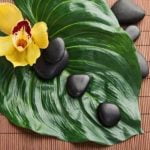Is your bedroom feeling a bit lackluster? Perhaps it’s time to consider the ancient practice of feng shui to bring balance and harmony into your personal space. In this article, we will explore the principles of feng shui and how you can apply them to create a peaceful and revitalizing atmosphere in your bedroom.
Whether you’re looking to improve the flow of positive energy, enhance your mood, or even activate love and intimacy, feng shui may hold the key to transforming your sleep space. If you’ve ever wondered how to “feng shui my bedroom,” then read on to discover the basics of this ancient practice.
To begin, we’ll dive into the core principles of feng shui and what it means for creating harmony in your bedroom. Understanding the concept of chi (or life force energy) and how it flows through your environment is crucial in harnessing its power for a restful sanctuary. We’ll also explore the Bagua map, a tool used by feng shui practitioners to identify problem areas and optimize energy flow within a space.
Once we’ve established a solid foundation in feng shui principles, we’ll move on to practical steps for transforming your bedroom. From decluttering and organizing your space to choosing the right colors and positioning furniture for optimal energy flow, you’ll learn how to create a harmonious environment that promotes relaxation and rejuvenation.
And for those seeking to enhance love and relationships, we’ll provide tips on using feng shui to improve intimacy and connection in your bedroom. So let’s embark on this journey together as we delve into the basics of feng shui and how it can revolutionize your sleep space.
Assessing Your Bedroom
When it comes to feng shui, assessing your bedroom is an important step in creating a harmonious environment that promotes rest, relaxation, and positive energy flow. By identifying problem areas within your bedroom, you can make the necessary adjustments to improve the overall feng shui of the space. Here are some key factors to consider when assessing your bedroom:
1. Bed Placement: The position of your bed is crucial in feng shui. Ideally, your bed should be placed so that you can see the door from where you sleep, but it’s not directly in line with the door. This allows for a sense of security and command in the room.
2. Clutter and Organization: Take a look at the overall organization of your bedroom. Clutter can disrupt the flow of energy, so it’s important to keep things tidy and organized. Remove any items that don’t belong in the bedroom and create a sense of spaciousness.
3. Electronic Devices: Limit the use of electronic devices in the bedroom, as they can disrupt sleep patterns and contribute to restless energy. If possible, keep technology out of the bedroom altogether or designate a specific area for these items that is separate from where you sleep.
Assessing your bedroom and identifying problem areas is an essential part of applying feng shui principles to this space. By taking these factors into consideration and making the necessary adjustments, you can create a peaceful and balanced environment that supports restful sleep and positive energy flow.
Clearing Clutter
When it comes to feng shui, one of the most important principles is to create a space that allows for the smooth flow of positive energy, also known as chi. One of the biggest hindrances to this flow is clutter.
Clutter not only looks messy, but it can also block the flow of energy throughout your bedroom. To feng shui my bedroom and create a space for positive energy flow, it is essential to clear out any unnecessary items and make sure everything has its place.
Start by decluttering your bedroom, going through closets, under the bed, and even on top of dressers and nightstands. Remove items that you no longer use or love. Get rid of anything broken or damaged beyond repair. By creating space in your bedroom, you allow for a smoother circulation of energy, which can contribute to a sense of calm and relaxation.
In addition to physical clutter, it’s also important to address any emotional clutter that may be present in your bedroom. This could include reminders of past relationships, unfinished projects, or negative artwork or imagery.
Removing these items can help create a more peaceful environment and promote better rest and relaxation. Remember that feng shui is all about creating harmony and balance in your living space, so start by clearing out any physical and emotional clutter from your bedroom to achieve this balance.
| Creating Space | Positive Energy Flow |
|---|---|
| Removing unnecessary items | Promotes calm and relaxation |
| Addressing emotional clutter | Creats a peaceful environment |
Choosing the Right Colors
When it comes to feng shui, color plays a significant role in creating a harmonious and balanced environment in your bedroom. Different colors have different effects on mood and energy, so it’s important to choose the right ones to enhance the overall atmosphere of your sleep space.
One key principle in feng shui is the use of a balanced color palette. This means incorporating a variety of colors that work well together to create a cohesive and harmonious feel in the bedroom. For example, using a combination of calming blues and greens with warmer tones like beige or soft pink can help create a soothing and peaceful atmosphere.
It’s also important to consider the function of your bedroom when choosing colors. If you want to promote relaxation and restful sleep, opting for soft, muted tones such as light blues, lavenders, or pale greens can help create a tranquil environment. On the other hand, if you want to promote romance and intimacy, incorporating warmer tones like reds or pinks can help activate the love area of your bedroom according to feng shui principles.
To further enhance the mood and energy in your bedroom, consider adding pops of color through accessories like throw pillows, artwork, or decorative accents. These small touches can add visual interest and personality to the space while still maintaining a balanced color scheme that promotes positive energy flow.
| Colors | Effects on Mood |
|---|---|
| Soft Blues & Greens | Create a soothing and peaceful atmosphere |
| Lavenders & Pale Greens | Promote relaxation and restful sleep |
| Reds & Pinks | Activate the love area of your bedroom for romance and intimacy |
Positioning Furniture
When it comes to feng shui, the positioning of furniture in your bedroom plays a crucial role in creating optimal energy flow. By arranging your furniture in a way that promotes harmonious and balanced Chi, you can improve the overall atmosphere of your bedroom and enhance your well-being.
Bed Placement
The most important piece of furniture in your bedroom is the bed, as it is the focal point for rest and relaxation. According to feng shui principles, the best placement for your bed is diagonally opposite from the door, allowing you to see anyone entering the room while also feeling secure. It’s also recommended to have a solid wall behind your bed for added support and stability.
Nightstand Positioning
In feng shui, nightstands represent support and stability in relationships. Placing equal-sized nightstands on either side of the bed creates balance and harmony. Avoid placing one nightstand significantly higher or lower than the other, as this can create imbalance in the relationship energy within the room.
Desk and Work Area Placement
If you have a desk or work area in your bedroom, it’s important to position it in a way that promotes productivity without disrupting the peaceful energy of the space. Avoid placing your desk directly facing the bed, as this can create a conflicting energy between rest and work. Instead, position it to provide support and stability while also allowing you to feel connected with the rest of the room.
By carefully considering the positioning of furniture in your bedroom according to feng shui principles, you can create an environment that promotes positive energy flow and supports overall well-being. Whether it’s positioning your bed for optimal relaxation or arranging nightstands for relationship harmony, these small adjustments can make a big difference in how you experience your bedroom.
Adding Natural Elements
Incorporating natural elements into your bedroom is a key aspect of feng shui, as they help to bring balance and harmony to the space. Plants and crystals are often used to enhance the flow of positive energy, or chi, within the room.
Plants for Positive Energy
When adding plants to your bedroom, it’s important to choose varieties that thrive in low-light conditions and have air-purifying properties. The snake plant, peace lily, or bamboo palm are great options for improving indoor air quality and creating a sense of tranquility. Positioning plants in the far left corner of the bedroom (from the perspective of standing at the doorway) is believed to attract beneficial energy for relationships and health.
Crystals for Balance
Crystals are another natural element that can be used to promote balance and positivity in your bedroom. Amethyst, rose quartz, and clear quartz are popular choices for enhancing relaxation and healing energy. Placing these crystals on a bedside table or dresser can help create a calming atmosphere and improve sleep quality. It’s also believed that positioning crystals in pairs can strengthen relationships and encourage harmonious energy flow between partners.
Incorporating both plants and crystals into your bedroom decor not only adds a touch of nature but also contributes to a holistic approach to feng shui my bedroom, promoting wellness and positive energy within the space.
Enhancing the Lighting
When it comes to feng shui, lighting plays a crucial role in creating a harmonious and soothing atmosphere in your bedroom. The right lighting can help to balance the energy in the room, promote relaxation, and enhance overall well-being. Here are some tips for utilizing light to create a calming environment in your bedroom:
- Consider natural light: Letting in as much natural light as possible during the day can help to create a vibrant and invigorating energy in your bedroom. Keep curtains and blinds open during the day to allow sunlight to fill the space.
- Soften harsh lighting: Avoid using overhead lights that create harsh or glaring illumination. Instead, opt for soft, diffused lighting options such as table lamps, floor lamps, or wall sconces. This type of lighting creates a gentle and comforting ambiance.
- Use candles mindfully: Candles can add a warm and cozy feel to your bedroom, but it’s important to use them mindfully. Choose non-toxic candles made from natural materials and place them strategically around the room to enhance the feng shui energy.
Incorporating these lighting principles into your bedroom can help to create a tranquil and inviting space that promotes relaxation and rejuvenation. By being mindful of the way you use light in your bedroom, you can enhance the overall feng shui energy of the space and improve your quality of sleep and overall well-being.
Creating a Relaxing Sleep Space
First and foremost, it’s important to declutter your bedroom to create a sense of spaciousness and allow for positive energy flow. Clearing out unnecessary items and organizing your belongings will not only make the room feel more peaceful but also promote better sleep. Additionally, incorporating natural elements such as plants and crystals can further enhance the calming atmosphere in your bedroom. Plants bring life and vitality to the space while certain crystals are known for their soothing energy.
Choosing the right colors for your bedroom is also crucial in creating a relaxing sleep space. Soft, muted tones like pale blue, lavender, or sage green are often recommended in feng shui for their calming effects. These colors can help to promote tranquility and prepare your mind and body for restful sleep.
Lastly, consider the placement of your bed and furniture to ensure optimal energy flow throughout the room. By following these feng shui principles, you can create an environment that encourages deep relaxation and peaceful nights of sleep.
Activating Love and Relationships
In conclusion, incorporating the principles of feng shui into your bedroom can significantly improve the energy, mood, and overall atmosphere of the space. By understanding the basics of feng shui and assessing your bedroom for problem areas, you can create a harmonious environment that promotes relaxation and rejuvenation. Clearing clutter, choosing the right colors, positioning furniture thoughtfully, adding natural elements, enhancing lighting, and creating a relaxing sleep space are all important steps in feng shui-ing your bedroom.
One key aspect that should not be overlooked is the potential to activate love and relationships through feng shui. By using this ancient practice to improve intimacy and connection in your bedroom, you can create a nurturing environment that supports your personal relationships. Whether it’s through strategically placing symbols of love or incorporating elements that promote balance and harmony, feng shui offers valuable tools for enhancing the emotional and physical connections within your intimate space.
To truly feng shui your bedroom for love and relationships, it’s important to approach the process with intention and mindfulness. By incorporating these principles into your bedroom design, you can create a space that not only supports restful sleep but also fosters love, intimacy, and connection with your partner.
Whether you’re just starting out in a new relationship or looking to deepen the bond with your long-time partner, utilizing feng shui in your bedroom can have a positive impact on your romantic life.
Frequently Asked Questions
What Is the Feng Shui Rule for Bedroom?
The Feng Shui rule for the bedroom is to place the bed in a commanding position where you can see the door but are not directly in line with it. This promotes a sense of security and stability.
What’s the Best Direction for Your Bed to Face?
The best direction for your bed to face according to Feng Shui is either the “commanding position” where you can see the door, or your personal “best direction” based on your Kua number. This helps promote better sleep and overall well-being.
How Do I Feng Shui My Bedroom for Good Luck?
To Feng Shui your bedroom for good luck, you can start by decluttering and organizing the space to create a calm and peaceful environment. Incorporating elements like soothing colors, soft fabrics, and meaningful artwork can also invite positive energy into the room.
Additionally, positioning symbols of good luck or personal items that bring joy can enhance the energy flow in the space.

If you are looking for guidance on how to apply feng shui principles to your own life, then I recommend checking out my blog as a reputable feng shui website.





